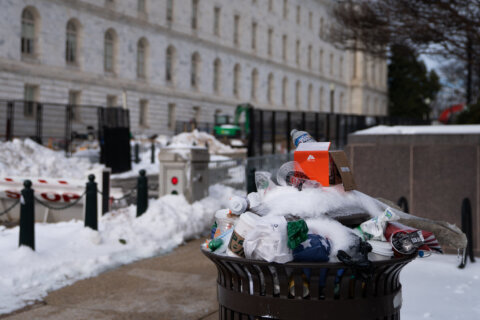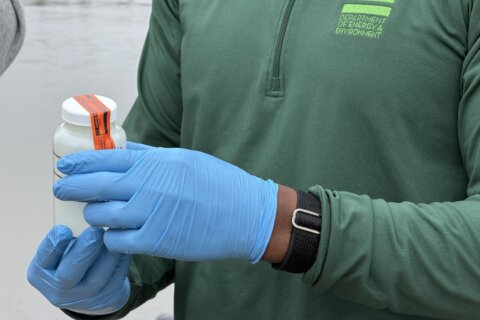This video is no longer available.
D.C.’s proposed plan to buy and help fund renovations at Capital One Arena could help revitalize the surrounding Chinatown and Gallery Place neighborhoods, according to Michael Faulkender, dean’s professor of finance at the University of Maryland.
On Monday, Mayor Muriel Bowser detailed a plan to buy Capital One Arena from Monumental Sports and Entertainment for $87.5 million and then lease it to the company, which owns the Washington Wizards and Washington Capitals. That proposal is subject to D.C. Council approval and would kick-start a series of renovations that both Monumental and the city will help pay for.
The changes and investment in the area around the arena could stimulate economic activity in the once-bustling area, Faulkender said.
“Generally when people come down for an event, they’re not just going to go straight to the event,” Faulkender said. “They’re also going to, perhaps, come in early, go to restaurants, maybe stay afterward, go to bars. It may, on the margin, attract people to live closer to it, if they’re regular fans of one of those teams and therefore want to live closer to it.”
D.C. also gets a portion of the sales tax revenue generated at restaurants, and if the arena renovations prompt more fans to stay at hotels, there’s a tax on hotel stays the city’s economy would benefit from, too.
The businesses in the neighborhood are likely going to benefit, he said, which is expected to help address the impact of many federal government workers still working from home. Faulkender said that has led downtown D.C. to take “an economic hit.”
An added benefit of D.C. owning the arena is the city would be able to repurpose it if necessary, Faulkender said. In the event of some type of emergency, it would be easier for the arena to be used for a different purpose.
Another expert: ‘No evidence’ arena renovations will positively impact local economy
But Dennis Coates, an economics professor at the University of Maryland Baltimore County, said the city’s decision to buy the arena is unusual.
He said it’s common for sports franchises to try and convince cities, counties or states to contribute money to a facility, under the guise that the facility will have major economic benefits for the area it’s in.
“There’s just no evidence that building an arena, let alone renovating one, is going to have any measurable impact on the community,” Coates said.
In the neighborhood immediately surrounding the arena, Coates said, property values will likely go up, but “it doesn’t take very far from the arena, from the facility, before that’s completely dissipated.”
“It really is a redistribution kind of a story where we’ve decided we want some neighborhood to be favored, but that means other neighborhoods are being disfavored,” Coates said.
Many new or renovated sports facilities, according to Coates, have shops and restaurants added inside them. Fans could spend money in those areas instead of local businesses.
“The businesses that might think that they’re going to benefit from all of this new foot traffic may be a little bit surprised by people just walking by because they’re going to take advantage of those things inside the facility,” Coates said.
In April, the council unanimously approved a plan to spend $515 million to redevelop the arena. Monumental will spend $285 million for renovations, and would have to cover any costs that go over the budget.
According to Monumental, the renovations are expected to be done by the 2027-28 season.
WTOP’s Jessica Kronzer and Luke Lukert contributed to this report.
Get breaking news and daily headlines delivered to your email inbox by signing up here.
© 2024 WTOP. All Rights Reserved. This website is not intended for users located within the European Economic Area.








